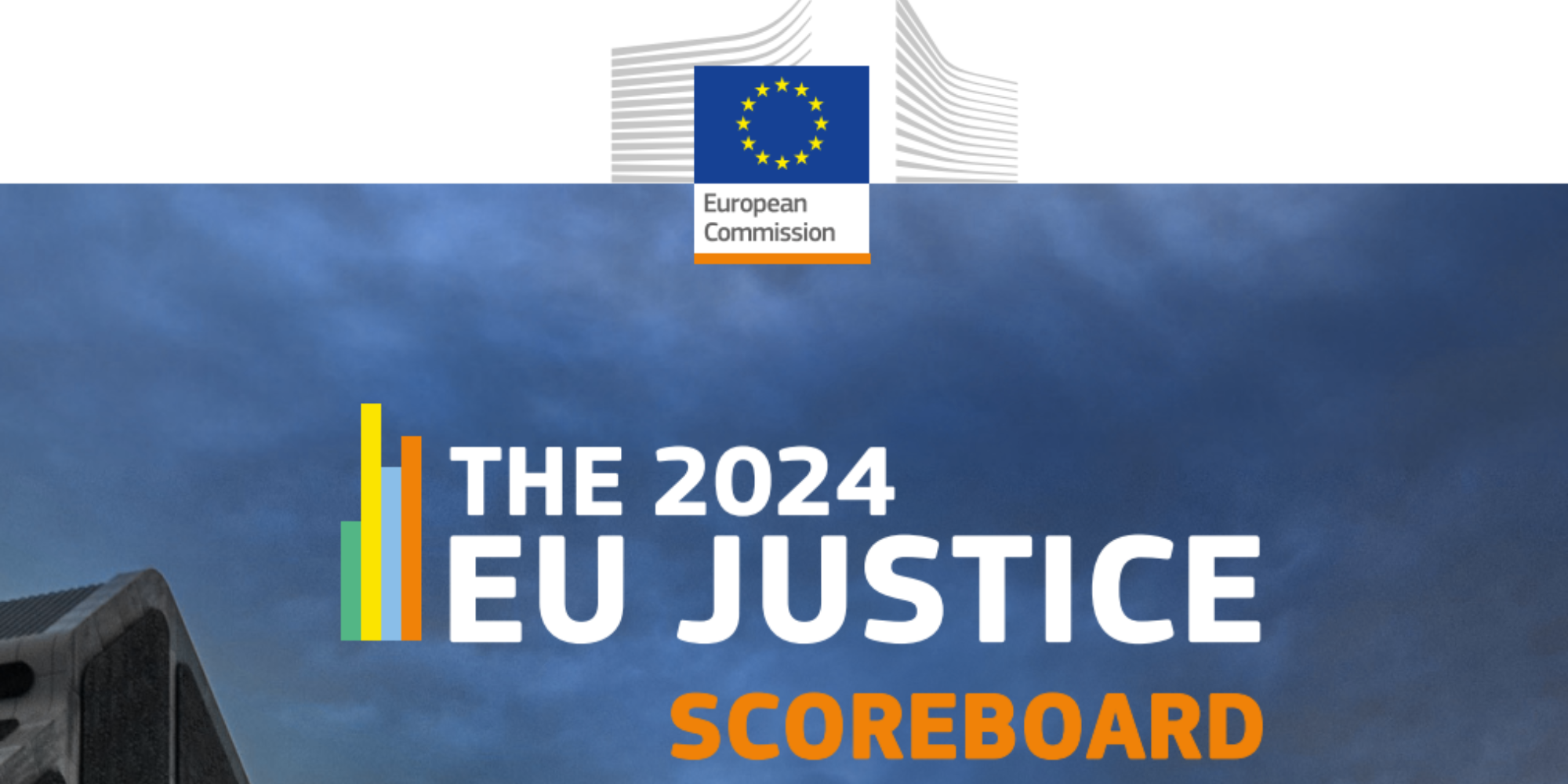The European Commission has published the twelfth edition of the EU Justice Scoreboard, an annual overview providing comparative data on the efficiency, quality, and independence of justice systems among the EU Member States. Compared to last year, the public’s perception of judicial independence has improved, also in countries that had experienced systemic challenges.
This year’s Scoreboard includes several new figures on accessibility of justice, such as on the accessibility to justice professions for persons with disabilities; on the accessibility to justice for consumers when exercising representative actions protecting their collective interests; on the salaries of judicial and prosecutorial expert staff; and on the notaries and their powers in the succession procedures. The 2024 edition also includes, for the first time, specific new figures on the independence of justice, for example on the appointment of court presidents, on national frameworks regarding asset declarations, and on the dismissal of Prosecutors General.
Key findings of the 2024 EU Justice Scoreboard:
- Perception of judicial independence has improved, including among countries which experienced systemic challenges: A Eurobarometer survey among the general public shows that, since 2016, the general public’s perception of judicial independence has improved or remained stable in 19 Member States. Amongst companies, another Eurobarometer survey shows the perception of independence has improved or remained stable in 19 Member States compared to 2016. Perception of judicial independence improved, both among the general public and companies, also in countries that have experienced systemic challenges to judicial independence.
- An insight into the appointment of prosecutors and the dismissal of the Prosecutor General: In 14 Member States, either the independent prosecutorial councils or prosecution service itself appoints prosecutors. The power for the executive (either the Minister of Justice, the Government, or the Head of State) to appoint prosecutors is subject to a judicial review in nearly all the 12 Member States where prosecutors are appointed this way. It is also mandatory in nearly all these 12 Member States to state reasons for the rejection of a candidate for prosecutor. 20 Member States give the executive or parliament the power to dismiss the Prosecutor General (in five of them on a proposal by the Council for the Judiciary), and in six Member States this power is given to the Council for the Judiciary. 16 Member States offer the possibility of a review of the decision.
- Ongoing potential for enhancing the digitalisation of justice systems: Only six Member States have procedural rules which allow the admissibility of evidence in digital format in civil, commercial, administrative, and criminal cases. In 26 Member States, this is a possibility in some cases or in some areas of law. Moreover, the findings of this year’s edition reveal that there is still room for improvement when it comes to the possibility to initiate proceedings or file a claim online. Nine Member States either allow for this possibility in some situations only or do not allow it at all.
- In most Member States there are specific arrangements for supporting the participation of persons with disabilities as professionals in the justice system: In 20 Member States there are at least some specific arrangements supporting the participation of persons with disabilities.
- Varying degrees of specific arrangements for child-friendly proceedings with children involved as victims or suspects or as accused persons: In 26 Member States information is provided about the victim’s or suspect’s rights and the proceedings in a child-friendly way and in 18 Member States, criminal proceedings involving children are treated as a matter of urgency.
Next steps
The information contained in the EU Justice Scoreboard contributes to the monitoring carried out within the framework of the European Semester and the Annual Rule of Law Cycle — the findings will feed into the Commission’s 2024 Rule of Law Report. The 2024 EU Justice Scoreboard has been further developed to address the need for additional comparative information (such as a new figure on the salaries of judicial and prosecutorial expert staff and on the procedure to dismiss Prosecutors General) identified during the preparation of the 2023 Rule of Law Report. The Scoreboard’s data are also used for the monitoring of the National Recovery and Resilience Plans.
For more information, please visit the article’s source.
Source: European Commission | Press corner (https://shorturl.at/GxCXJ)
